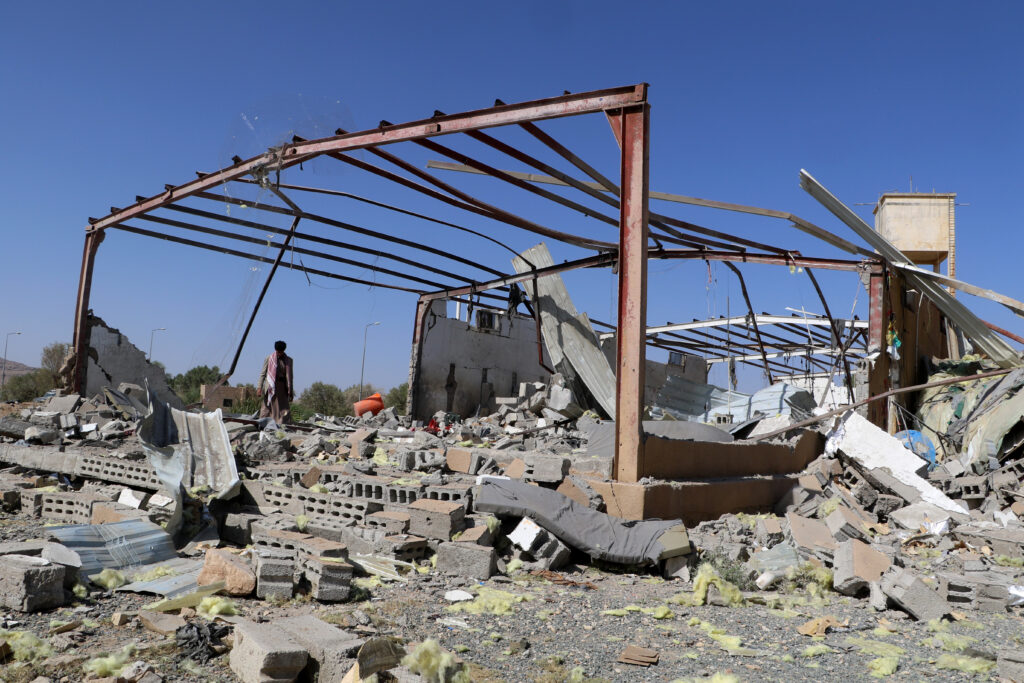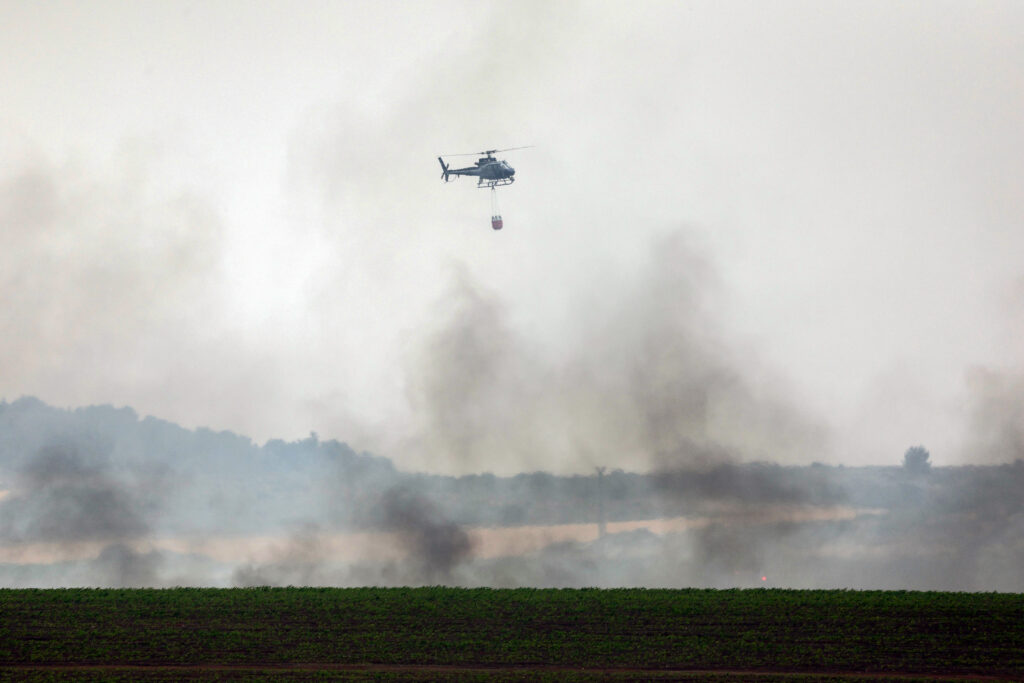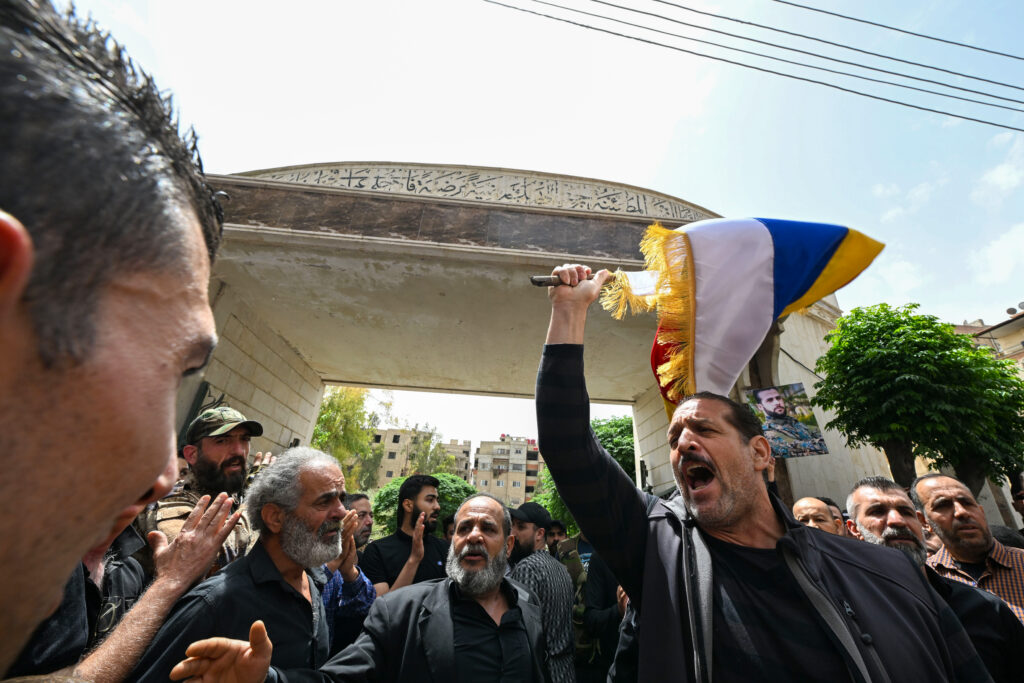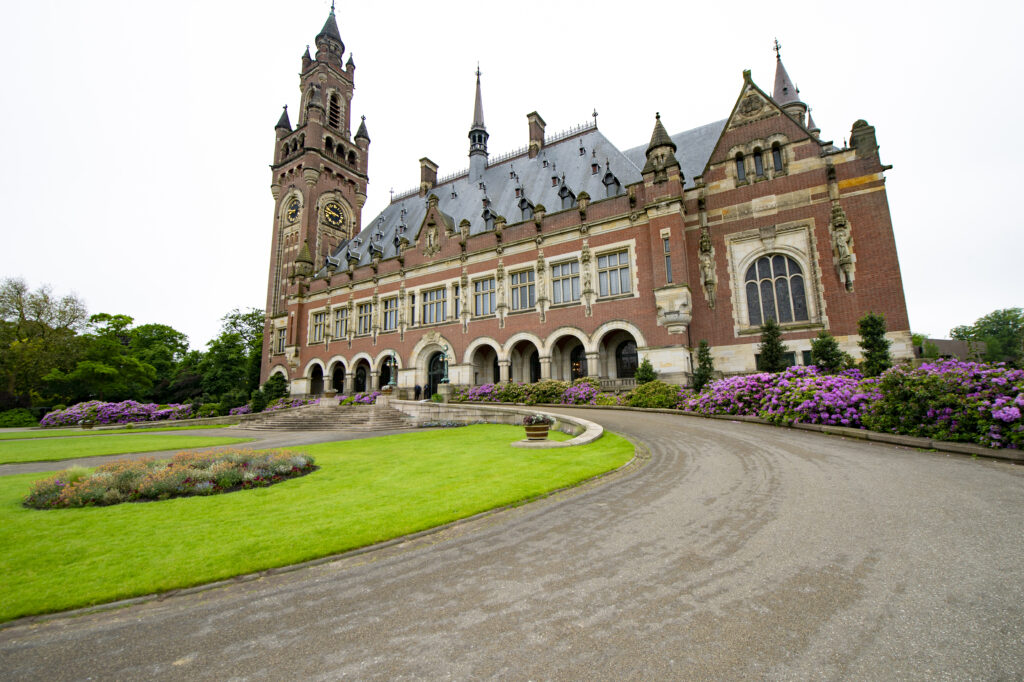Migrants’ dreams buried under rubble after deadly strike on Yemen centre
Africans in search of a better future became the latest casualties of Yemen’s decade-long conflict after a deadly strike blamed on the United States hit a migrant detention centre, killing dozens of people.The pre-dawn attack on Monday killed more than 60 people in their sleep, the country’s Huthi rebels said, attributing the raid to the US military.Rubble, blood and body parts dotted the grounds of the compound in rebel-held Saada, with several buildings left in ruins, twisted metal glittering in the sun.In a nearby hospital, emaciated African men were recovering from their wounds after surviving the attack that tore their friends to pieces. “The planes struck close by twice. The third time they hit us,” said Abed Ibrahim Saleh, 34, a soft-spoken Ethiopian whose head and leg were wrapped in white gauze.”Dead bodies ripped apart, I can’t describe what I saw… A hand here, a leg there. I don’t want to remember,” he said with a blank stare. Since mid-March, Washington has conducted near-daily air strikes on the Iran-backed Huthis in a bid to stop their campaign of attacks on shipping in the Red Sea and Gulf of Aden, launched in solidarity with Palestinians after the outbreak of the Gaza war.US strikes on the rebels began under former president Joe Biden, but have resumed and intensified under his successor Donald Trump.- ‘Targeting poor migrants’ -Footage broadcast by the Huthis’ Al-Masirah TV at the time of the attack showed bodies lying under the rubble as rescue teams searched for survivors.The tragedy brought back memories of a March 2021 blaze at a Sanaa migrant centre that killed 45 people and was sparked by teargas canisters fired by Huthi forces responding to a protest.In 2022, air strikes blamed on a Saudi-led coalition battling the Huthis hit the same detention complex that was struck on Monday, killing dozens of people.Each year, tens of thousands of migrants cross the Red Sea from the Horn of Africa, fleeing conflict, natural disasters and poor economic prospects.Many hope for employment as labourers or domestic workers in Saudi Arabia and other wealthy Gulf countries, though they first face a perilous journey through war-torn Yemen.Inspecting the wreckage, Ibrahim Abdul Qadir Mohammed Al-Moallem, a member of Yemen’s Somali community, denounced the “heinous crime” against innocent people.”This brutal aggression that killed the sons of Palestine and the Yemeni people is now targeting poor migrants,” he said, blaming the United States for the attack.The Huthis, who have also repeatedly launched missiles and drones at Israel, paused their attacks during a recent two-month ceasefire in Gaza, but had threatened to resume them after Israel cut off aid to the territory over an impasse in negotiations.Before they could, however, the intensified US campaign resumed, hitting more than 1,000 targets in rebel-held Yemen since March 15. The Huthi’s attacks since then have only targeted US warships.”There is no justification for this,” Moallem said, calling on African leaders to take a stance and urging the international community to “break your silence”.- ‘Alarming’ civilian deaths -Asked about the strike, a US defence official told AFP the army was aware of reports of civilian casualties “and we take those claims very seriously”.”We are currently conducting our battle-damage assessment and inquiry into those claims,” they said on condition of anonymity .The United Nations expressed deep concern at Monday’s strike, while Niku Jafarnia of Human Rights Watch said US attacks “are appearing to kill and injure civilians in Yemen at an alarming rate over the past month”.”Failing to take all feasible precautions to mitigate civilian harm constitutes a violation of international humanitarian law,” HRW said.





